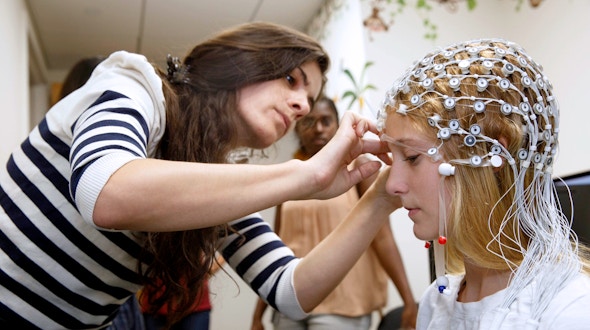Simons Foundation Autism Research Initiative (SFARI)
SFARI’s mission is to advance the basic science of autism and related neurodevelopmental disorders.

Funding Innovative Research
SFARI currently supports over 300 investigators worldwide through a variety of funding mechanisms, including individual investigator grants, collaborative grants and early career awards.
Establishing Shared Resources
SFARI is committed to advancing open science by generating and sharing essential data, tools and resources with scientists across academia, industry and nonprofit to help accelerate research on autism and related neurodevelopmental disorders.
Cohorts
Explore the Simons Simplex Collection, Simons Searchlight, SPARK, Simons Sleep Project, Research Match and the Autism Inpatient Collection.
Tools
SFARI offers several open source data analysis and visualization tools to help researchers explore and analyze data.
Models
SFARI facilitates access to rat, mouse, zebrafish and human iPSC models that scientists can leverage for research.
Biorepository
Biospecimens including plasma, LCLs, PBMCs, DNA, iPSCs and postmortem brain tissue are available to qualified researchers.
Neuroscience Collaborations
The Neuroscience Collaborations are part of the Autism and Neuroscience division of the Simons Foundation along with SFARI. They support and convene scientists to address fundamental questions about brain function.

Plasticity and the Aging Brain
The Simons Collaboration on Plasticity and the Aging Brain aims to discover mechanisms of resilience and maintenance in the aging brain and to establish a baseline for age-related changes in plasticity across many model systems.

Simons Collaboration on Ecological Neuroscience
The Simons Collaboration on Ecological Neuroscience (SCENE) aims to understand how affordances offered by the world shape representations in the mind and the brain.

Simons Collaboration on the Global Brain
The Simons Collaboration on the Global Brain (SCGB) aims to expand our understanding of the role of internal brain processes in the arc from sensation to action, thereby discovering the nature, role and mechanisms of the neural activity that produces cognition.
News & Research Highlights
The Transmitter

Explore our Cohorts & Biorepository

Simons Searchlight
Simons Searchlight is an international research program that collects genetic, medical, and behavioral data from individuals who have a genetic variant linked to autism.

Autism BrainNet
Autism BrainNet is a collaborative network of academic sites that collects, stores and distributes brain tissue for research on autism and related neurodevelopmental disorders.

SPARK
SPARK, the world’s largest autism research study; collecting genotypic and phenotypic data from more than 150,000 people with autism and over 250,000 of their family members.

Autism Inpatient Collection
The Autism Inpatient Collection houses genotypic and phenotypic data from more than 1,500 children with autism who were admitted to an in-patient child psychiatry units.

Simons Simplex Collection
The Simons Simplex Collection, contains rigorously characterized genetic and phenotypic data from nearly 3,000 families with one child affected by autism.






